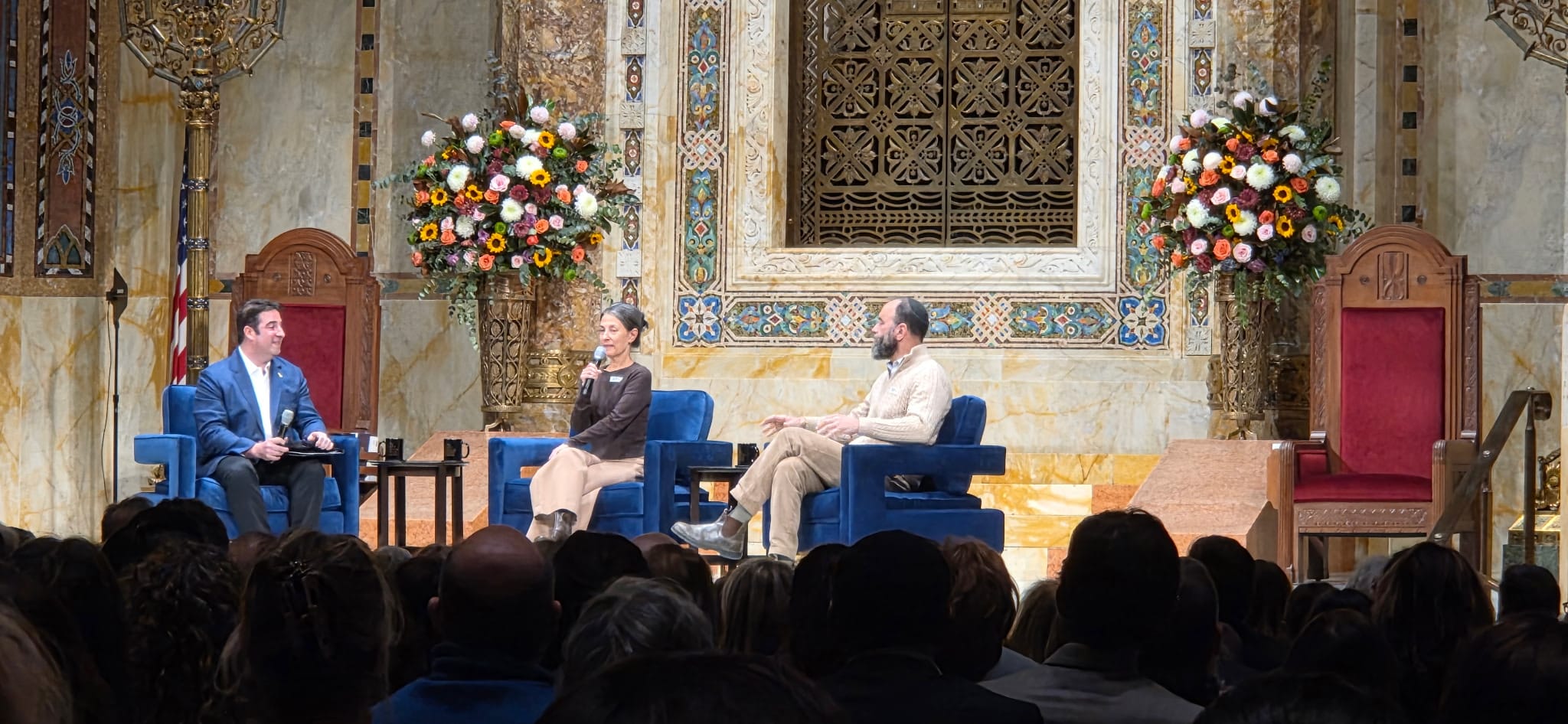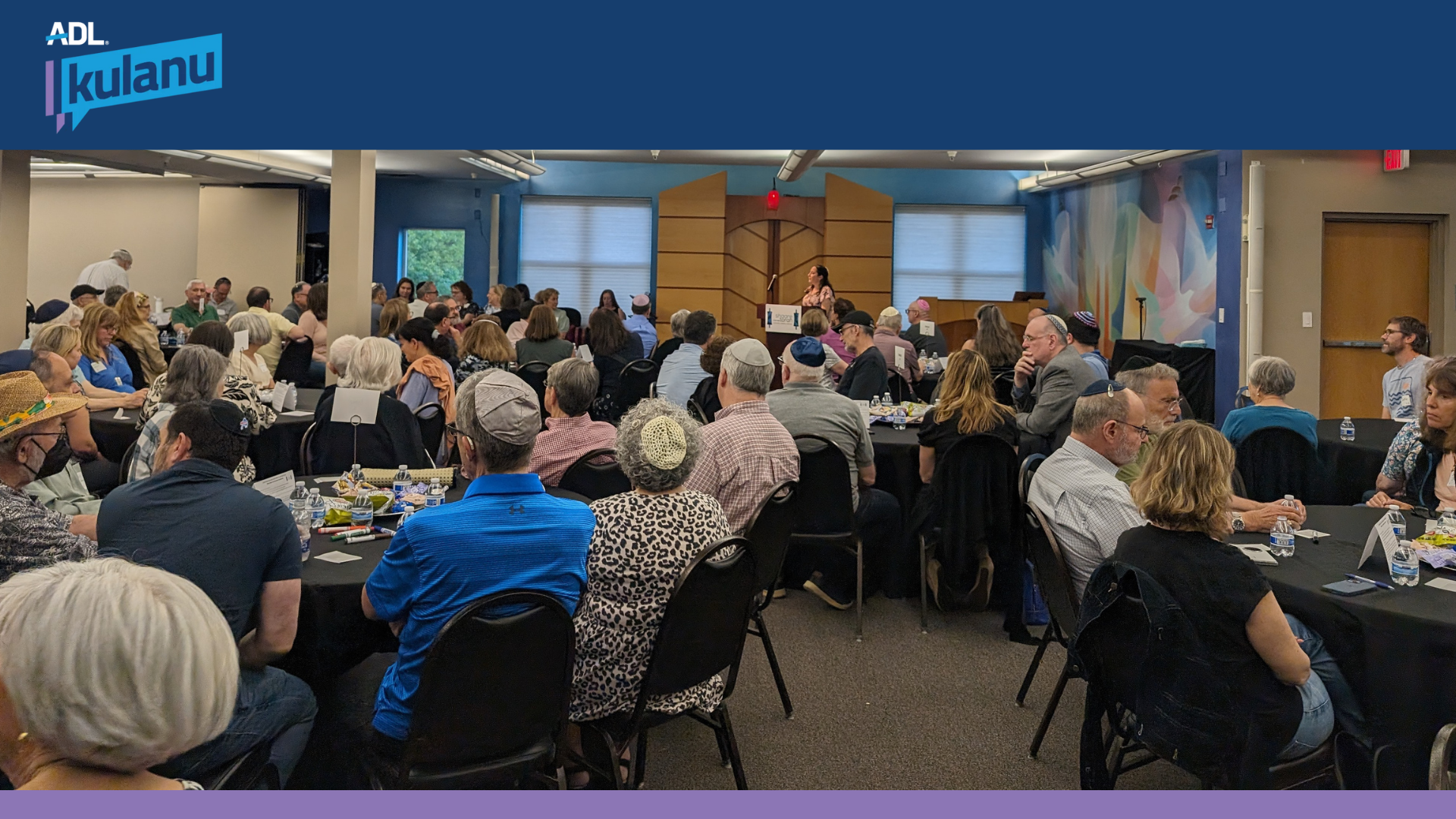
Call to Action
The global climate crisis is an historic inflection point for our planet, our communities, and our people.
The Intergovernmental Panel on Climate Change (IPCC), the UN body that assesses the science of climate change, estimates that we have fewer than seven years to take urgent and meaningful action to avoid locking in the most catastrophic effects of climate change.
Jewish tradition compels us to respond.
Jewish Climate Leadership Coalition
In 2022, USCJ signed on as a founding partner to the Jewish Climate Leadership Coalition, along with twenty other national and international umbrella organizations of Jewish life.
Powered by Adamah, the Coalition is a network of Jewish community organizations who recognize the existential threat and moral urgency of climate change and commit to taking action.
Coalition members develop Climate Action Plans that outline our strategic priorities of our climate work. Our Climate Action Plan details action taken to-date and sets goals for both reducing our greenhouse gas emissions and mobilizing our networks around climate action in the year ahead.
Inspired by Jewish values, we are working to do the Jewish community’s part to mitigate the worst effects of climate change and build a livable future together.
We invite Jewish community organizations everywhere to join us.
For more information about the Jewish Climate Leadership Coalition, watch the Coalition launch video or visit Adamah’s website.
With around 550 synagogues in North America and a presence in Israel, United Synagogue of Conservative Judaism (USCJ) is the largest network of Conservative Jews in the world. We are the network that ensures there are thriving centers of Jewish practice across North America, Israel, and beyond that celebrate both tradition and contemporary life. Together, we demonstrate what an authentic and dynamic Judaism looks like, inspire people to be a part of it, and advance its critical role in the world.
Actions Taken To-Date
The Conservative movement has long cared about sustainability, including a partnership with the US government to encourage congregations to join the EnergyStar program and providing guidance to them on doing so. We are now actively looking to provide resources for energy savings and water usage across North America.
Top Priorities
Sustainability is a mitzvah derived from God’s command to Adam to till and to tend the Earth (Genesis 2:15). One articulation of this is in Kohelet Rabbah 7:13: At the time when God created Adam, God took him around the trees of the Garden of Eden, and said to him, “See My works! How beautiful and praiseworthy they are. Everything that I have created, I created for you. Take care not to damage and destroy My world, for if you damage it, there is no one to repair it after you.” There are many other halakhot and values relevant to taking immediate action with respect to reducing carbon and impact on the environment which also motivate us to take action.
USCJ’s Climate Action Plan for 2023 will focus on the following areas:
- Congregational community of practice. As the convener of the Conservative movement, USCJ is uniquely poised to support and encourage member synagogues to take action on this issue. We will partner with Adamah to co-facilitate a community of practice through the framework of the Jewish Climate Leadership Coalition. As a part of this work, we will seek to recruit 30 Conservative synagogues from around North America who are interested in this topic and potentially ready to take significant action, to be part of the initial cohort. We aspire to involve over 100 congregations over the course of this shemita cycle.
- Elevating the issue. USCJ has a number of projects that have dealt with issues related to climate and sustainability. In the coming year, we will integrate that work to ensure coordination, and compile information about our climate-related efforts onto a public-facing page on our website. This information will support congregations in the cohorts and be available to other congregations wishing to take initial steps to improve their climate impact, even if they are not cohort participants.
- Internal Carbon Reduction. USCJ will engage in our own process to reduce our carbon footprint detailed in the plan below.
Additional Goals
In addition to the priorities outlined above, USCJ commits to the following additional climate actions:
- Primary energy use. Many USCJ congregations have building footprints. Over the next year, we will support and encourage congregations to reduce their primary energy usage. We will conduct webinars and provide educational resources to support congregations in doing so.
- Renewables. We will continue to encourage Conservative synagogues to begin the process of powering their buildings through renewable energy. We will leverage knowledge and expertise from the Adamah staff team to support us in this work, and weave this topic into our community of practice. We already make available to our network of synagogues information about government rebate programs in the US and Canada and will share other resources about how congregations have implemented renewable energy improvements across our network.This could take one of three forms:
- Purchasing 100% renewable energy through an electric provider.
- Installing solar panels on-site.
- Purchasing power from an off-site solar array or other renewable energy source.
- Transportation. Through the coronavirus pandemic, we developed creative ways to meet our mission that involved reduced travel. We have already limited travel as much as possible and we commit to incorporating that learning and making climate impact a factor in evaluating future travel opportunities.Some work-related travel will remain essential for our mission, including teen trips for example. For work-related travel that we do engage in, we will explore offsetting the climate impact of that travel through purchasing climate offsets. For our conferences, we will also explore offering participants the opportunity to offset participant travel emissions through climate offsets.We will also encourage congregations in our network to be thoughtful and deliberate about holding virtual meetings when feasible and appropriate.
- Food. We will use the resource guide being developed by Adamah along with Adamah staff support to mitigate the climate impact of our meals served at events and our conference by choosing lower-impact foods. We are exploring making an explicit commitment to reducing greenhouse gasses from the food we serve, through participation with the Humane Society’s new and free ForwardFood program.We will encourage all of our congregations to follow this same approach, especially to reduce food waste by providing Shabbat/event leftovers to those in the community who could use an extra meal and to implement composting where possible.We will encourage all of our congregations to reduce the use of disposable dishes and flatware (unless it is compostable), and to minimize single-use plastic for food preservation and protection.
- Offsets. We will leverage Adamah’s expertise and resources to understand more about reliable forms of carbon offsets for future implementation. Regarding carbon offsets for transportation, see above.
- Education & Celebration. There is a direct link between synagogues that have a high level of awareness of this topic and those that take assertive action. Young people, in particular, are passionate about this topic. We will strengthen ties between USY and the Jewish Youth Climate Movement in order to support work at individual synagogues and communities. We will also seek to broadly provide support and distribute educational resources for our membership, leveraging the material of the JCLC.USCJ will explore ideas to celebrate climate action awareness in future years, such as Climate Action Shabbat which could be celebrated in conjunction with Earth Day / parsha Behar and supported by Adamah resources.
- Finance. USCJ maintains several funds, including investment of restricted and non-restricted USCJ funds, and participates in a group pension fund for staff who are employed at USCJ institutions.Our Investment Policy statement which governs the funds that USCJ manages states that our investments shall be managed with environmental, social, and governance considerations in mind.Our Investment Committee has explored the topic of Environmental Social Governance (ESG) investing, which considers various environmental criteria when making investments. The Investment Committee has determined that currently there are no widely accepted criteria for environmental investing at the current time. The Investment Committee continues to monitor this area and will report back to the board as appropriate.We will also share our findings on ESG investing with our member congregations, many of whom are also wrestling with this complex topic.
- Advocacy. USCJ does not currently engage in political advocacy. We will explore the possibility of engaging in political advocacy on the topic of climate justice in the future.We will encourage our member congregations to include environmental advocacy in their social justice efforts.
- Resiliency. We will create a disaster preparedness plan that can be implemented when/if a natural disaster or other crisis disrupts normal operations. We will provide informational resources and support to all of our congregations to develop the same. We also have a process to support congregations impacted by disasters and update it regularly. This includes an existing process to allow for dues variances and reductions for congregations impacted by natural disasters.
We will continue to update and provide resources as they become available.










